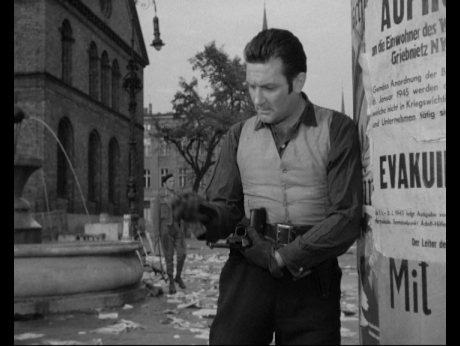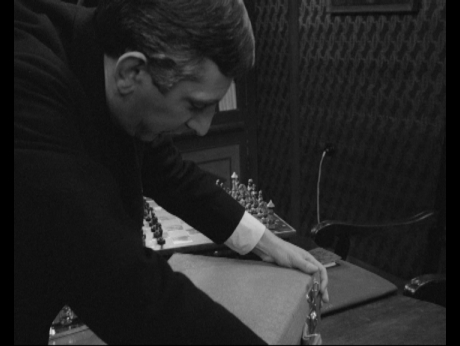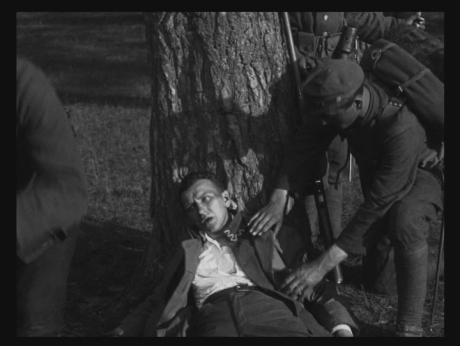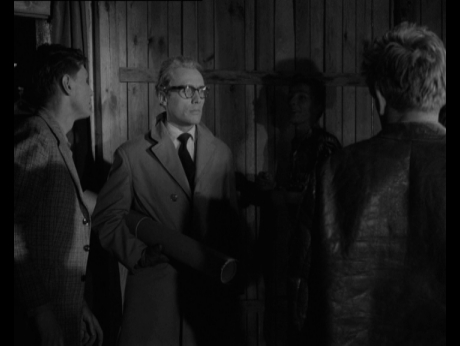
 overview
overview
A series of three feature film novels.
Novel “Divorce in Polish”: The story of two people in love whose ambitions and everyday life put them at odds.
Novel “Birthday”: The birthday of an old, retired political party activist. On this day he realises how fragile and temporary human relationships are.
Novel “An hour drive”: A doctor who saves the life of a baby must help the sick child again. In order to save it again, she must show huge determination because of the numerous obstacles she encounters on the way.

 storyline
storyline
Novel: "Divorce in Polish"
A good-hearted looking man walks into the court. He finds himself in the middle of numerous conversations. Clients explain their complex situations and sins to their lawyers, the lawyers advise them on what to say in the courtroom. People look at each other suspiciously; it’s a small town and everyone knows everybody. The man turns out to be a local Secretary. He has come to court for his divorce trial. He speaks to two of his friends. In a moment it turns out that one of them is his wife’s lawyer, and the other – the judge. They have many strange connections with each other, which will make the divorce trial difficult. Finally the wife arrives late. She is young, pretty, and a student of medicine. She’s the one who filed for divorce even though they both still love each other. During the trial it turns out that the lack of a flat is the reason for their misunderstanding. The Secretary never tried to get a flat because he was so busy with other things. When he was finally assigned a flat, he gave it away to someone else who was more in need (and turned out to be a juror in the trial). His wife cannot understand his complete engagement in social issues. She claims that he never paid enough attention to her and did not understand her need to finally have something of her own: a flat, car, furniture, curtains.
For observers this is a very strange case. A divorce without cheating, alcohol, violence? A florist who is loaning his flat to the Secretary testifies that his wife lives in Wrocław, where she is studying. She visits her husband, but they have to do this in secret, because according to the law you cannot sleep in a flat where you are not registered. People in the courtroom begin to realize that neither the husband nor wife are to blame – that the conflict is taking place because of their difficult situation and different ambitions. The husband wants to save his marriage and is able to arrange a flat to be assigned to him. He is now only waiting for the keys and believes that the messenger will bring them to him before the trial ends. However his wife doesn’t believe him anymore. The divorce is declared. Despite this the Secretary and his wife somehow cannot part. They go see the flat. This may be a new beginning for them. However it turns out that the flat has already been taken by a man who was in the courtroom and left as soon as he found out that the divorce was declared. He is a father of many children and has been waiting for 12 years to receive a flat, which was taken away from him at the last moment to save the Secretary’s marriage. However because they are now divorced, the Secretary no longer has the right to the flat. His wife cannot stand it anymore. She goes back to Wrocław. The young Secretary is left by himself.
Novel: "Birthday"
An old man gets up from bed. He sees flowers in a vase. His wife gives him a present. There are pictures and diplomas on the wall, all given to him on his previous birthdays. As a party activist he would always receive best wishes from high ranked dignitaries. Even though he is retired now, he expects that his old friends and colleagues will visit him. Hours pass. A postman comes with his pension, a woman injured in an accident comes to ask for his help, believing in his old connections, and finally a KW secretary comes, but only to ask him for advice in a personal matter. Nobody remembers his birthday. The man still has hope that at least his old friends from the underground army will wish him a happy birthday. They indeed come in the evening, but for a completely different reason. The man cannot have a drink with anyone. Even the electrician, who is repairing his lights, says he doesn’t have time. Finally he sits down next to his wife, sad and resigned. They smile at each other, start to joke and dance. They are happy being along with each other, just the two of them.
Novel: "An hour drive"
In the hospital. A medical check-up for babies is in progress. One of the children turns out to have a heart disease. Nobody knows if it will be possible to save him. A young doctor takes care of him. This is one of her first professional challenges. Despite the child’s collapse she is able to reanimate him and stabilize his heart. Soon after the baby leaves the hospital. The grateful parents invite the doctor to their place. She tells them that in case they have any problems with their child she will come to help them.
There is a crisis three years later. The doctor goes to the hospital where the child has been taken, because she knows his medical history best. She forgets her purse from the taxi. She catches a train, but the conductor does not believe that she is a doctor going to an emergency and makes her leave the train even though other passengers want to pay for her ticket. She tries to get to the hospital another way. It is winter and there is heavy snow, which affects the trains. The doctor manages to get into a freight train and plans to change into another which goes straight to the town where the hospital is. However she doesn’t manage to do this and must hitch-hike. The snow on the roads disables any movement. In the meantime the child starts to get worse. A local doctor feels no pulse and gives the child an adrenaline injection. The police looks for the doctor everywhere, but nobody knows what happened to her. Finally a patrol finds her. The doctor helps the local doctor over the radio telephone. A direct heart massage is necessary. Due to her detailed instructions the local doctor, who has little experience, is able to make the child’s heart start beating again.

 comment
comment

 press review
press review
„In their previous film »The Law and the Fist« they presented facts, sometimes in a western-adventure character, and treated them as a pretext to ask questions of a moral nature. There is a lack of such questions in their last film. The anecdote is treated too literally and no further sense is made of it. A journalist’s reportage may be based solely on facts – however the best ones also include some subtext and the bigger picture. Feature films, however, must take facts and make something more of them, they must find a reason that would explain why they have chosen to look at these facts, what their sense is. They must penetrate the human psyche or present a moral dilemma. If they don’t, the film is empty and trivial. In the news it is enough to say that Kowalski and Kowalska are getting a divorce, because she wants a flat and he didn’t get one for her, although he could as an activist. The same story, shown in a feature film, can be an occasion to think about the sense of life, about values which are important in life, about morality, etc. In a film you need to take a closer look at these people. It is not enough to put in a few jokes and be content with a banal and schematic dialogue (»But I love you«, »But you didn’t arrange a flat«). When telling this story and looking at the character’s dilemmas, the directors don’t try to look deeply at neither the situation, nor the figures. The only reflections one may have are of a journalistic nature”.
Janusz Gazda, Inspiracja?, „Ekran”, 1965, nr 36
“The public enjoys feature films more than an arrangement of novels, but »Three steps on earth« will definitely interest them – it shows Poland in the present day, nothing fake, nothing weird, but the complexity of real problems. (…) Contrary to what it may seem, presenting modern reality carries many potential difficulties. The opportunity which is offered by reportages and articles from “Polityka” could be wasted. It is great journalism, but easy to turn into pathos in small forms of a feature film. That is unfortunately what happened in »An hour drive« and the audience may highly polemicize with this novel. The second novel seems to be the most mature. However all of them present a broad knowledge of human types and characters, a richness of observation, many layers of everyday problems and the knowledge that in human life every situation may be serious or comic alternately. (…) We must mention the acting here. Many great names. Fijewski in the role of Majchrowski, Irena Orska amazing in the role of his wife Marysia, Rudzki as if born in a toga, Michnicki good as a judge, Czechowicz very likable as the kind driver. Roles well cast, interesting realizations, a very precise piece of work with good taste”.
Maria Klimas-Błahutowa, O tym, po co „Trzy kroki po ziemi”, „Panorama”, 1965, nr 40
„Each (…) of the novels has a different style. »An hour drive« is a story full of emotions and tension, almost an action story. »Birthday« is an etude full of reflections and subtle psychological threads. »Divorce in Polish« is a broad fresco full of expressive characters. Built out of brilliant observations of the almost family-like life of a small town. It is decorated with a big portion of intelligent humour. Kazimierz Rudzki in the role of a lawyer is the best part of this novel. In Rudzki’s filmography this is certainly one of his best roles, a pearl in the history of our post-war cinema. Tadeusz Fijewski was great in the novel »Birthday«, playing the role of an old man waiting for a nice gesture from his friends. Irena Orska played his understanding partner. Actually all of the acting in this film is really good. »Three steps on earth« is a well done film which really touches what people care about. A good film to watch and to reflect upon. What place does it have in our cinema’s experience? It seems to be one of the best attempts to deal with modern problems. It is a modest attempt, due to our big appetites, but a very valuable one. Especially valuable in the novel »Divorce in Polish«, which is artistically mature and socially intensive. It is certainly one of the best novels made here”.
Kazimierz Kochański, Chodząc po ziemi, „Tygodnik Kulturalny”, 1965, nr 38
“This social triptic combines a deep engagement in modern issues, in important – although not always noticeable – problems of our reality. They also all reflect the directors’ love for a raw, documentary style. (…) Hoffman and Skórzewski showed their talent the most in the last novel – »An hour drive«. A thoughtless decision of the conductor of the train brings about unexpected consequences which could lead to the death of a child. This approach is contrasted with the devotion of the doctor, the solidarity of people who care. The atmosphere of this dynamic novel reminds us of the amazing film by Clement »If all the guys in the world« which was in our cinemas a few years ago. »Divorce in Polish« is most of all an amazing display of Kazimierz Rudzki’s acting skills in his role as the local lawyer. The ambition of the directors was to fill this novel with maximum reality. They managed to do this well despite a backbreaking, seemingly unbelievable ending. The intimate novel »Birthday« is probably the worst. The drama of the former party activist was played a bit too melancholically. It makes it hard to imagine the old Majchrowski as a leader of armed conspiracy acts, as someone who is a good organizer and has lots of energy. However »Three steps on earth« is an interesting and ambitious film, courageously undertaking real life conflicts and problems”.
Stanisław Ozimek, Trzy kroki do współczesności, „Żołnierz Polski”, 1965, nr 40
„The film is based on texts from »Polityka«, however this specific journalism has been lost in the film technique – decent, neatly done, but full of routine. The value of journalism is its typicality and broadness. This kind of material has a crowd character, although it is detailed: a lot is going on, although it is full of private details. In »Three steps« we do not find this flickering and movement of a reportage-survey. The authors of the film seem to have been afraid to have too many characters, they wanted to avoid the language of a »truth-cinema«, and anything of an interview which would be appropriate for »Polityka’s« profile; instead of journalism, they were interested in a few human types. Due to this, universalism was substituted with an anecdote, a survey – with a few characters, a broad reportage – with fiction. So what we have here is a traditional novel: we don’t see the survey done by a team of journalists, but three works written by professional literates and adapted by directors who were interested in their professional goals: working well with actors. The characters which were chosen as the main ones, detached from the broad background of journalism, create an image which is somewhat unfortunate. (…) The film shows a country in which activists are homeless when they are young and forgotten when they get old and have families. »Three steps on earth« are more like three steps in the atelier on Chełmska street. They are taken with too much unneeded caution”.
Zygmunt Kałużyński, Czy to jest realizm?, „Film”, 1965, nr 44

 did you know?
did you know?
The scenes were filmed on the south of Warsaw and close do Siedlce.
The official premier of the film was on September 6, 1965 in the Wisła Cinema in Warsaw with the participation of Jerzy Hoffman, Edward Skórzewski and Anna Ciepielewska.
After the premier of the film, “Polityka” received a letter from its reader from Białystok: „Is the drama of the third novel based only on the actions of the idiot conductor? Most doctors do not have cars, because they don’t have enough money – numerous people from the country could not be saved, because 2-3 ambulances are on their way or still being repaired and there is no transport to get to the ill. If a doctor has the money, he or she should try to buy a car…”.
B. Rachwalski, „Polityka”, 1965, nr 42After “Three steps on earth”, Hoffman and Skórzewski had a few projects of further films: “An old tale” based on Kraszewski’s novel (script by Aleksander Ścibor-Rylski), filming a novel by Władysław Machejka, the story about Kostka Napierski. However the directors drifted apart.
The titles of the original literary novels are not stated in the credits of the film.

 posters and stills
posters and stills





































Behind the scenes. A less known film by Hoffman and Skórzewski, their final project together. Three novels form the basis of the script – they are reportages from the weekly “Polityka.” Both of the directors wanted each novel to be in a different style and climate. In life funny things interweave with tragic ones, melodrama interweaves with grotesque – they explained. We wanted our film to have the structure of a newspaper, where next to general information there would be some small notes and references. So the film transposition of the first column is based on authentic subjects of the Polish Newsreel. Later we reach for further pages: court documents or an action story about saving a sick child. The main characters are plain, normal, one of many. At the same time they are people who cannot remain indifferent towards social property, individual happiness, an illness – we could continue the long list. Andrzej Koenig, the main character of “The Law and the Fist” was also this kind of a figure who could not stay uninvolved.
M. Oleksiewicz, Od współczesności do millenium, „Film”, 1965, nr 36
Using parts of the Polish Newsreel apparently give “Three step…” some authenticity. However in fact it really builds an ironic context. The PN materials show
COLUMNBREAKPOINT
a province which is slowly liberating from apathy and localism and is developing and catching up with the city. However each of the novels actually shows that the people living there still have the same problems and their reality is full of absurd regulations, human stupidity and loosening ties. The directors show that PN does not go deep into this reality but only films its facade. Because Hoffman and Skórzewski based their film on real events they made sure that the reality would be as similar as possible to when the events actually took place. The court scenes were filmed in the same building that was described in “Polityka’s” reportage. When filming was for some reason not possible in the original places, they were reconstructed in the atelier. The directors were loyal to the reportage description not only in the scenography. The scene of the operation in the third novel is an exact copy of the real one. Hoffman claims that even the greatest medical pedant will not find any mistakes in the terminology or medical conduct. Because of this, “Three steps on earth” is such an engaged film. It draws on real events and real human emotions connected to these events, therefore engaging the viewer into the small town reality with so many obstacles and nonsense.